Cultivators and dispensaries have different but important security needs; thus, regulators mandate requirements of facilities to ensure that the businesses do not fall victim to theft and diversion. Common regulations involve commercial video, alarm, and access control systems. These requirements are the minimum for businesses, and businesses can choose to do more than the regulators require.
How about laboratories though? Cannabis laboratories, also known as safety compliance facilities or testing labs, perform chemical analyses on products to determine qualities like THC content or pesticide percentage. Laboratories do not handle the amount of cannabis which other license types do.
Cannabis laboratories typically receive (or select themselves) small samples from cultivators or processors in amounts of 1-10 grams per batch. Obviously for cultivators and processors, testing is an expense; therefore, the fewer tests and samples required, the better. For regulators though, any vulnerability to theft or diversion could impact the state program and its goals. Excessive security mandates may discourage business activity though, so how is this conflict resolved?
Non-Exhaustive Survey of State Requirements
Most states have general security requirements that apply to all licensees, including laboratories. States like California, Oregon, Massachusetts, Missouri, Ohio, and several other markets do not distinguish the security requirements for laboratories beyond the minimum practices for everyone. For example, in California, a laboratory would be required to keep video for 90 days like everyone else does now.
- Pennsylvania, famous for its two=years video storage requirement for dispensaries and cultivators, does not state a length of time for laboratories.
- Washington DC details security expectations, focusing on records integrity and chain of custody, less so theft or diversion specifically. Access authorization and intrusion prevention are listed as specific defenses.
- Delaware, an older cannabis program, spells out security requirements for its safety compliance facilities similarly to its compassion centers.
- Hawaii requires that transportation of samples for laboratory testing remain in full view of video cameras during unloading into the laboratory’s facility.
- Maryland requires vehicles carrying samples to meet all security requirements of other cannabis transportation. This is assumed for most states, but Maryland explicitly states it.
This non-exhaustive list demonstrates that sometimes cannabis laboratory security gets special treatment, but usually it does not. Since the focus of laboratories is public safety, most regulations revolve around chemical quantities permissible by the law. Testing methods and sample integrity are also emphasized, again to ensure that consumers know what chemicals they are ingesting.
Best Practices for Cannabis Laboratory Security
While the risks of burglary seem lower than that of dispensaries or cultivators, not all is in the clear – readers of our industry news know that most theft is internal. Labs should still keep products in safes or secure cabinetry overnight. Also, cameras are the best method to monitor unsafe behaviors, e.g. leaving equipment unattended or not wearing gloves.
Additionally, even if product does not total into the millions of dollars, equipment may. Therefore, cameras and access management can serve as fundamental investigative tools if a machine appears misused or vandalized. Laboratories are very reliant on machine calibration and uncontaminated parts for results integrity, and many machines can come from small companies uneager to service warranties.
Finally, waste can lead to diversion, as laboratories discard samples after testing. Often, not an entire sample is used; therefore, the remaining amounts are susceptible to diversion, for either personal use or resale. These actions would be strictly illegal, as all unused cannabis samples should be rendered unusable once no longer needed.
How Can Sapphire Risk Help?
Sapphire Risk Advisory Group has worked to secure cannabis laboratories throughout the United States. Follow us on social media to stay up to date with more security best practices and cannabis industry updates!
Author

Leo Falgout is the Chief of Staff at Sapphire Risk Advisory Group. Leo Falgout has been with Sapphire for four years and previously served as Lead Technical Writer. As Chief of Staff, Leo has overseen the completion of over 500 security plans for cannabis business applications with an average score of 94%. Leo obtained his B.S. in Polymer and Fiber Engineering from the Georgia Institute of Technology and his M.S. in Materials Science and Engineering from the University of Illinois at Urbana-Champaign.
- California Senate Bill 69 Adds CEQA Requirements for New Cultivators

- Top 5 Cannabis Security and Surveillance Violations
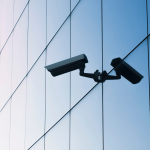
- Peace of Mind in the Retail Sector: Facility Security

- Opportunities in the Ohio (O-High-O) Cannabis Market

- Building Security and Trust: Verifying Identification and Payments
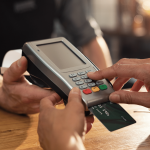
- The Importance of Loss Prevention
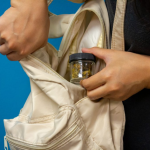
- Thoughts to Improve Cannabis Security Regulations Across the Nation
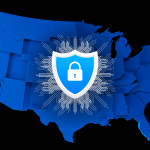
- Opportunities in the Minnesota Cannabis Market
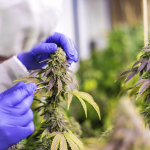
- U.S. Cannabis Legalization 2023 Update
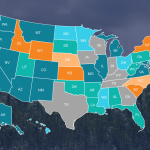
- How to Present Your Cannabis Business Vision to Your City


